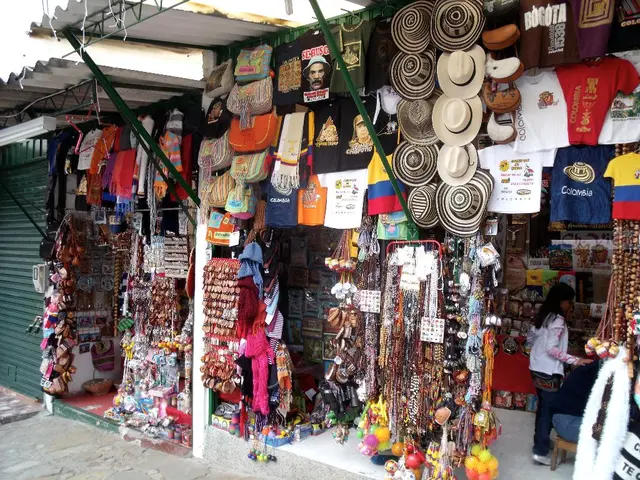Cryptocurrency Swindle in the UK Worth $2M Prompts Caution: Failure to Perform Independent Research Could Lead to Loss of Funds Beyond Tokens
In a recent turn of events, two individuals, Patrick Mavanga and Raymondip Bedi, have been sentenced to more than six years and five years in prison, respectively, for orchestrating a multi-million dollar cryptocurrency fraud. The fraudsters, who contacted victims via cold calls offering fraudulent cryptocurrency investments between February 2017 and June 2019, defrauded at least 65 investors out of over $2 million (£1.5m).
The Financial Conduct Authority (FCA) issued an official statement about the sentencing, urging any defrauded investors who haven't been contacted yet to come forward. This incident serves as a stark reminder of the importance of doing one's own research (DYOR) instead of being swayed by hype.
Centralized crypto platforms can increase transparency and oversight, reducing the risk of large scams like this one. By implementing robust anti-money laundering (AML) and know your customer (KYC) procedures, enhancing transaction monitoring, and promoting real-time public financial transparency combined with regulatory compliance and reporting, these platforms can provide stronger oversight.
Key measures include stringent AML and KYC compliance, on-chain transaction monitoring and regular audits, regulatory licensing and oversight, and enhanced algorithmic transparency and open ledgers. Centralized exchanges are generally required to enforce strong KYC procedures to verify user identities and conduct due diligence to detect and prevent illicit activities. They also need to employ technology for ongoing transaction surveillance to flag abnormal or potentially fraudulent activity in real time.
Governments and regulatory bodies increasingly require crypto exchanges to be licensed and to submit to oversight frameworks that clarify jurisdiction and responsibilities. For example, the U.S. CLARITY Act proposes mandatory registration, custody standards, and AML compliance, fostering transparency and consumer protection.
Beyond regulatory compliance, some advocates emphasize radical transparency—making financial flows and decision-making processes auditable and publicly visible. This can be applied to blockchain transaction data and platform logic or algorithms to ensure openness and accountability.
In the crypto world, users are not just consumers; they are their own gatekeepers. Blindly trusting hype can lead to financial losses, even in the best decentralized technology. Ignoring DYOR and being guided by FOMO (Fear of Missing Out) could result in financial losses beyond just tokens.
The Shiba Inu ecosystem, which includes The Shib Magazine and The Shib Daily, emphasizes the necessity of DYOR, stating it as a survival tactic in the crypto world. Tools like the Alpha Layer are designed to provide on-chain transparency to empower users. The article encourages readers to conduct their own research and consult with a qualified financial adviser before making investment decisions. DYOR involves digging past headlines, cross-checking wallets and dev teams, and questioning promises that seem too good to be true.
His Honour Judge Griffiths described Bedi and Mavanga as "leading players" in a cryptocurrency scam and noted that the victims were convinced to invest in crypto consultancy services. The sentencing serves as a warning to all in the crypto community to be vigilant and to always do their own research before investing.
- Despite the sentencing of two individuals for a multi-million dollar cryptocurrency fraud that defrauded investors, the Shiba Inu ecosystem, which includes The Shib Magazine and The Shib Daily, continues to emphasize the importance of doing one's own research (DYOR) as a survival tactic in the crypto world.
- In the crypto world, it's not just about the tokens, but also about understanding the financial flows and decision-making processes, as blindly trusting hype and being guided by FOMO (Fear of Missing Out) could lead to financial losses beyond just tokens, as shown in the recent scam case.




